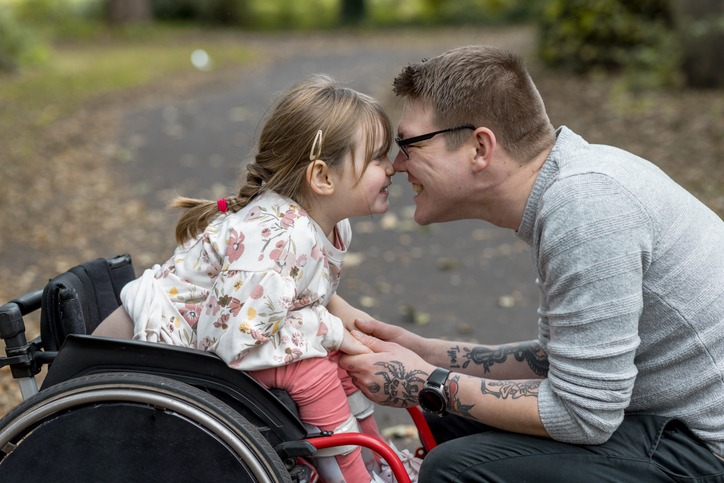When parents divorce, a key focus for each is usually ensuring that they can maintain their relationship with their children even if their marriage is ending. Often, some arrangement of joint physical and legal custody is devised. Even if these don’t always give parents exactly equal parenting time and decision-making authority, they tend to require regular transitions from house to house for the children and/or frequent collaboration between the parents to reach an agreement on schooling, medical treatment, and other key issues.
For parents whose children have special needs, though, there are additional factors that must be considered in creating a custody plan that prioritizes what is best for the child. Special needs children often require specialized care and more attention than other children, depending on the nature of their disability. The custody arrangement that will best support a particular child’s needs will be a highly individual determination based on a multitude of factors. Working with a family law firm experienced in addressing the concerns of special needs families can provide essential guidance in navigating the complexities of creating an appropriate custody agreement and parenting plan.
- Divorce and Child Custody of a Disabled Child
- Factors That Are Considered for Child Custody in Special Needs Situations
- When Parents Disagree on What a Disabled Child Needs
Are You Battling Child Custody With A Disabled Child?
Divorce and Child Custody of a Disabled Child
“Special needs” and “disability” are umbrella terms that cover a wide range of possible physical, developmental, emotional, or mental conditions that can interfere with a child’s ability to undertake daily activities to a greater or lesser degree. The most important considerations in supporting a particular special needs child’s well-being will therefore vary considerably. What does not vary is the underlying principle guiding child custody decisions: what is in the best interest of the child.
For example, a neurodivergent child, such as one with autism or ADHD, tends to need more structure and routine to reduce anxiety and promote their ability to function independently. Similarly, a child with a chronic illness may need daily medication, frequent visits to medical specialists, and medical equipment in the home for mobility and/or to provide for their health needs. Often, special needs children also need therapies of various kinds (speech, physical, occupational, psychological), as well. Child custody must address the specific requirements of their situation and how best to provide the care they need.
6 Factors That Are Considered for Child Custody in Special Needs Situations

Because stability, consistency, and access to specialized care or education are often high priorities for ensuring the welfare of special needs children, a typical joint physical custody arrangement may not be appropriate. In examining whether to award sole physical custody to one parent, the court considers factors such as:
- Who has been the primary caregiver? Often one parent has taken the lead on providing care, taking the child to therapist or doctor’s appointments, etc.
- What are the daily schedules of each parent? One parent may have greater flexibility or availability than the other.
- Where does each parent live in relation to needed resources? One parent may be closer to the child’s school, doctor(s), therapists, family, and friends.
- Is the parent’s home environment safe and accessible for the child? I.e., if the child has a physical impairment, the home should have the proper equipment to ensure their safety. If they are at risk of eloping (wandering off), the home should be properly secured.
- Is the parent able and willing to provide care for the child? This can range from providing full-time care, if needed, to consistently administering medication, adhering to behavior plans, or taking them to therapy appointments.
- What is the child’s preference? If the child is old enough and able to make an informed choice, their preference will be taken into account as well.
Considerations like this are in addition to the regular factors that govern child custody decisions, not instead of them. What determines a fit parent of a child with disabilities is their ability and willingness to provide the greater level of care their child needs to thrive. A comprehensive examination of what the child requires and who is best situated to ensure their needs are met may result in the decision that sole physical custody is best, with the other parent receiving some type of visitation.
Legal custody—the right and responsibility to make decisions about a child’s health, safety, education, and welfare—can also be awarded on a joint basis, even if one parent is awarded sole physical custody. However, that arrangement may not be in a child’s best interest if the parents routinely disagree about necessary treatments or if the child’s health might be threatened by delays in medical decision-making.
When Parents Disagree on What a Disabled Child Needs

The situation becomes more complicated when (as often happens) parents are not on the same page regarding their child’s educational, therapeutic, or medical needs. This can range from having relatively minor disagreements about what kind of therapies a child needs at what time to one parent refusing to acknowledge the child’s diagnosis or cooperate with treatment at all. In such cases, it can be necessary to bring in outside experts to evaluate the child and provide a third-party assessment to give the court a professional perspective.
Parents are essential advocates for their special needs children during custody proceedings. Documenting what therapies and treatments the child has received (and how much they cost) can support a parent’s position on what care is still necessary. It can also be helpful to enlist teachers, therapists, and healthcare providers to paint a complete picture of what is needed to promote the child’s well-being. Most importantly, having a family law attorney with experience in special needs custody disputes can provide guidance on effective strategies to achieve an outcome that safeguards the long-term well-being of your child.
Compassionate Family Law Experts in Silicon Valley
When divorce is upending your life, keeping your special needs child’s world safe and stable can feel like an impossible task. The compassionate attorneys at Hoover Krepelka understand what’s at stake when there are disputes about what’s best. We collaborate with experts from the Bodin Group, a team educational and therapeutic consultants with more than four decades of experience in providing guidance and expertise to families, to assist with custody evaluations that provide clarity. We’ll help you build a strong case to safeguard your child’s future. To schedule a consultation, fill out the form below.
———————————————————————————————————————————————————————
Contact Us
"*" indicates required fields


